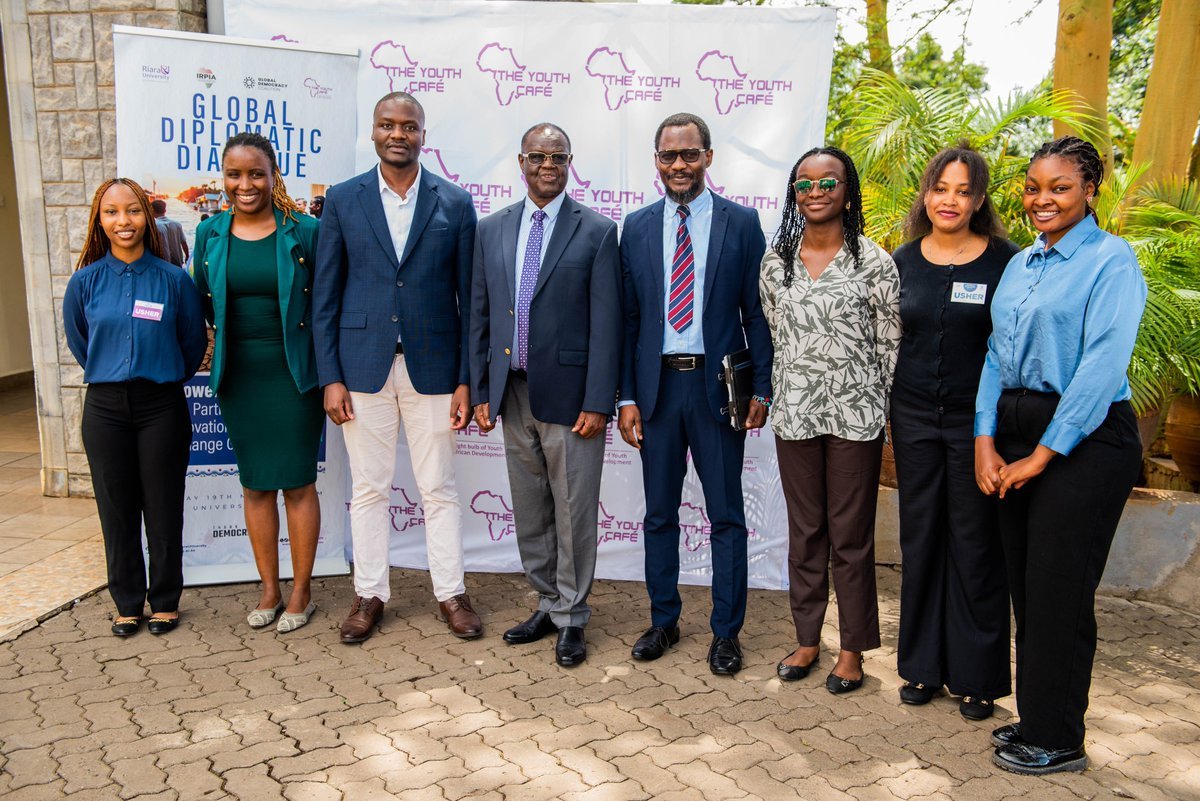Theme: Advancing Democratic Resilience at the Intersection of Human Rights and Environmental Justice
Join us at a pivotal moment for Africa as we convene thought leaders, activists, and policymakers to tackle pressing challenges at the nexus of democracy, human rights, and environmental justice. This forum is your opportunity to be part of the solution.
Introduction
Africa stands at a critical juncture, grappling with the dual challenges of promoting democratic governance and addressing socio-environmental injustices. Systemic corruption remains a significant hurdle, with 64% of Africans perceiving it as worsening, according to Transparency International’s 2023 Global Corruption Barometer; notable cases include Zimbabwe's "Gold Mafia" scandal and South Africa's state capture revelations.
Human rights violations are equally alarming, exemplified by violent crackdowns on Generation Z-led protests against Kenya's controversial Finance Bill and the tragic rise of femicide in South Africa, where 11 women are murdered daily. Meanwhile, environmental degradation compounds these challenges, with illegal oil refining in Nigeria's Niger Delta destroying ecosystems and prolonged drought in the Horn of Africa leaving over 20 million people food insecure. These interconnected issues threaten democratic progress, demand urgent reforms, and call for concerted efforts from governments, civil society, and international partners.
Participants at a past TYC Conference.
The human rights landscape in Africa continues to witness setbacks. Reports by organizations such as Amnesty International highlight rising concerns around shrinking civic spaces, suppression of freedoms, and increasing instances of electoral violence. For example, in 2023, Sudan experienced widespread human rights violations during internal conflict, displacing over 3.5 million people, while protests against authoritarianism in Zimbabwe and Guinea were met with heavy crackdowns. The intersection of governance and human rights remains clear: corruption erodes trust in public institutions and limits access to justice, education, and healthcare, affecting marginalized populations most acutely.
Environmental justice presents another critical frontier for Africa’s democratic future. Climate change disproportionately impacts African nations, which contribute less than 4% to global emissions but face devastating consequences such as droughts, floods, and food insecurity. For instance, recent droughts in the Horn of Africa affected over 36 million people, while mining activities in countries like Nigeria and the Democratic Republic of Congo have led to environmental degradation and displacement of indigenous communities.
However, progress is underway. Civil society organizations, youth movements, and local communities are leading the charge for change. The African Climate Summit in 2023 emphasized regional ownership of climate solutions, and Kenya's landmark Climate Change Act highlights steps toward environmental accountability. Similarly, community-led movements like South Africa’s “Right2Know” campaign and Kenya’s recent grassroots anti-corruption protests demonstrate the region’s resilience.
The Youth Café (TYC) has been a steadfast advocate for human rights and environmental justice across Africa, driving impactful programs that empower youth and foster sustainable practices. Through Intergenerational Dialogue programs, TYC has amplified youth voices in decision-making processes, while its environmental campaigns promote actionable solutions to climate challenges.
Despite progress, African youth face persistent barriers, including limited access to political processes, economic instability, and restrictive laws curbing activism. These challenges, however, present opportunities for transformative change. With Africa’s rapidly growing youth population, investments in education, leadership development, and digital literacy can unlock their potential as catalysts for democratic resilience
Speaker at a past TYC event.
The Forum Key partners such as Afrobarometer contribute data-driven insights on governance, enabling advocacy to address systemic issues. Organizations like SOMWA and CAHED tackle gendered inequalities and community-specific challenges, while the United Nations Office on Drugs and Crime (UNODC) strengthens governance by addressing corruption and organized crime. Together, these entities exemplify the power of collaboration, innovation, and inclusion in building transparent democracies.
The GDC Africa Regional Forum underscores that inclusive governance models integrating youth voices are essential for advancing democratic renewal. Digital platforms and intergenerational dialogues can bridge gaps, enabling youth to hold leaders accountable and champion environmental and social justice. The GDC Africa Forum offers an invaluable platform to harness these opportunities, promoting youth-led advocacy and action in the pursuit of stronger, more inclusive democracies.
Against this backdrop, the Global Democracy Coalition Africa Regional Forum 2025 seeks to tackle corruption as a root cause undermining democratic resilience and human rights, while positioning environmental justice as a vital priority. The forum will facilitate inclusive conversations, generate actionable strategies, and inspire collaborative efforts to create a more resilient, just, and sustainable Africa.
Objectives
Discuss Africa’s key challenges to democracy at the intersection of human rights, and environmental justice.
Highlight the role of anti-corruption efforts in advancing Human rights and environmental justice
Explore innovative and inclusive solutions to strengthen democratic institutions.
Share best practices for environmental justice and Human Rights.
Empower youth and civil society to drive democratic reforms.
Foster partnerships to address corruption, human rights, and environmental issues.
Key Guiding Questions
How can Africa address systemic corruption to advance human rights and governance?
What innovative solutions exist to tackle environmental injustices in the region?
How do human rights violations impact Africa’s democratic progress, and what role can civil society play in reversing this trend?
What strategies can strengthen youth participation in democratic and environmental decision-making?
How can intergenerational and cross-sector collaboration address governance, corruption, and environmental challenges?
What tools and mechanisms can ensure accountability and transparency in public institutions?
Conference Format
The one-day conference, scheduled at Daystar University Auditorium, Nairobi, will engage approximately 100 participants, including experts, policymakers, civil society leaders, and youth advocates in a powerful exchange of ideas and solutions. Featuring compelling keynote speeches, thought-provoking panel discussions, interactive breakout sessions, and impactful plenary forums, the event will spotlight youth leadership and grassroots activism as catalysts for change. Through workshops and panels, participants will explore cutting-edge policy innovations and best practices, forging cross-sector and cross-border collaborations to advance democratic resilience, human rights, and environmental justice.
Don't miss this unique opportunity to contribute to Africa's democratic and environmental future. Register now to secure your spot at the forefront of change. Contact us today!






